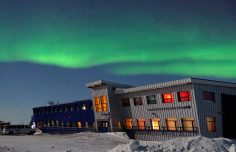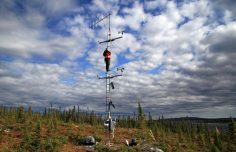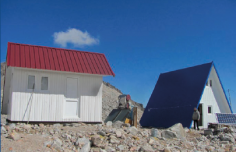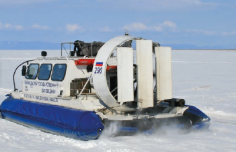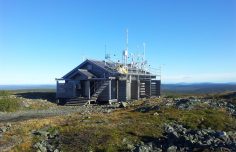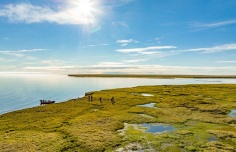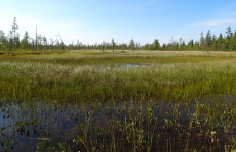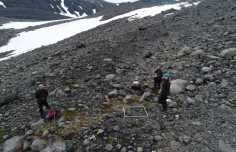A gas found in the earth’s atmosphere that traps heat radiated from the surface of the earth, and causes the earth’s temperature to rise. The term comes from the fact that these gases act a little like a greenhouse to limit the loss of heat from a system. The gases do not block high-energy radiation from the sun but they trap lower-energy radiation which would otherwise radiate from the Earth into space.
Many of the gases that occur in the Earth’s atmosphere are greenhouse gases. They include carbon dioxideA gas (chemical formula CO2), which occurs naturally in the Earth's atmosphere. Carbon dioxide is given off by organisms when they respire, and it is absorbed by organisms like plants and... More, methaneA colourless, odourless gas (chemical formula CH4). Some microbesproduce methane. It can also be found in underground deposits. Methane is the main component of natural gas, which is is an important... More and water vapour. They occur both naturally and due to human activities. If no greenhouses gases were present, the Earth surface would be about 33°C (91°F) cooler than it is. See also ClimateThe average weather we would expect over a long period of time (seasons, years, decades). Climate varies from place-to-place across the Earth. Climate is determined by long-term (over at least... More change and Global warmingThe enhanced greenhouse effect due to human activity and the resulting widely accepted rising average temperature near the surface of the Earth since the late 19th century (and its projected... More.
